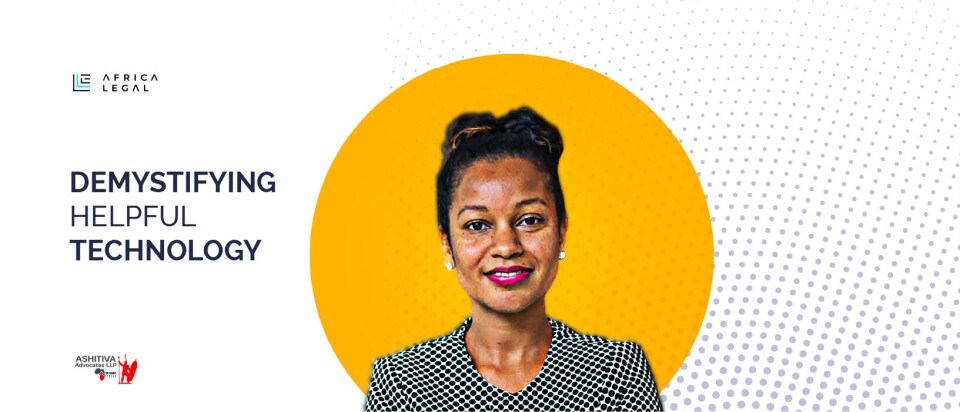Demystifying helpful technology
Blockchain technology has multiple uses and benefits for Africa, says corporate commercial expert Sylvia Kithinji, who discussed the issue with Craig Sisterson.
While blockchain technology is often misunderstood or associated with cryptocurrency speculation, Sylvia Kithinji of Ashitiva Advocates LLP believes the underlying technology has a variety of uses and benefits that can create efficiencies and positive impacts in Africa.
“Blockchain offers a broad range of uses, the key is just figuring out how to deploy it in an effective way to realise broad and far-reaching impacts,” said Kithinji, Head of Commercial and Corporate at the leading Kenyan firm. “One example is that you can use blockchain as a decentralised financing mechanism to provide access to credit for persons typically at the bottom of the pyramid. In Kenya there’s a financing gap for small and medium enterprises in the range of about $20 billion; how do you bridge that gap with traditional financing?”
She believes blockchain technology could be leveraged to make access to financing available for such people and smaller businesses, creating a huge impact.
Another use could be creating more efficient and economically transformative products, such as short- and long term financial products for segments of the population that wouldn’t typically have access due to high costs.
“First and foremost, the challenge with using technology like blockchain is just a general misconception,” clarified Kithinji. “You’ve seen it, especially with the waves going around about the use of cryptocurrency and what it really is. We need to demystify blockchain and create awareness that the underlying technology is different and can be used in different ways.”
The lack of a regulatory framework that reflects the pace of technology growth or the opportunities blockchain can offer creates an even bigger confusion or misconception, added Kithinji, highlighting that this harms the ability to drill down and use the technology in the best way possible.
However, she noted that the largely unregulated nature of blockchain at this time also provides African nations like Kenya with a golden opportunity to create a test environment where governments collaborate with the private sector to understand the magnitude of this kind of tool and its risks. It also gives scope for the range of use cases to be tested in a safe and controlled manner.
“If it’s possible to do that, where you have testing of use cases, then it’s possible to develop the regulatory framework alongside that, and within a reasonable period of time you'd be able to have a responsive regulatory framework that is able to leverage benefits while mitigating any adverse impacts technology like this would have. I think that’s the way to go.”
Collaboration is critical to ensure a variety of perspectives, says Kithinji, but African governments should take a catalytic role, adopting a welcoming approach while ensuring they put necessary precautionary measures in place.
“There’s learning to do. We can learn from other jurisdictions, but at the same time understand that our markets are different and have unique challenges, opportunities and populations. The key is understanding what needs we’re solving for Africa, and in doing so then be able to curate or tailor whether it’s regulatory solutions, policy solutions, or any other mechanisms that will need to be put in place based on our own current circumstances.”
To join Africa Legal's mailing list please click here

